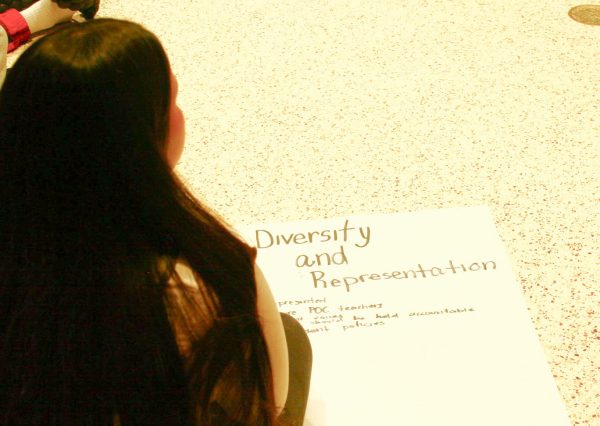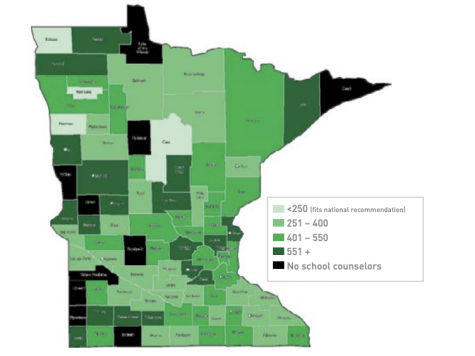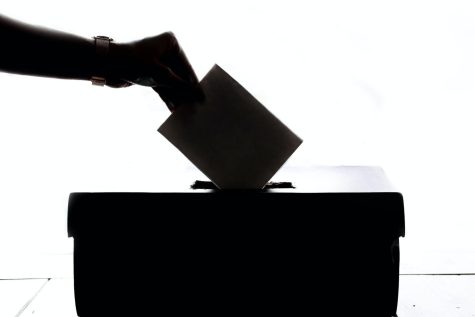Trump administration rolls out controversial new sexual assault policy
October 25, 2017
In politics today, sexual assault is a controversial topic. There have been debates over what counts as substantial evidence, with the two options being preponderance of evidence or clear and convincing evidence. The Obama-era administration set the standard of preponderance of evidence. Over the past month, Education Secretary Betsy DeVos has rescinded that policy in favor of clear and convincing evidence.
Sexual assault is a delicate topic, and the guidelines set forth by the Trump administration make the debate even harder, with more rigid standards of evidence. The new policy makes it more difficult for students to get the help they need, and may push people away from reporting an act of sexual violence against them.
According to the Cornell Law School, the preponderance of evidence standard is, “a requirement that more then 50 percent of the evidence points to something” whereas the clear and convincing evidence is, “a more rigorous standard to meet than the preponderance of the evidence standard, but a less rigorous standard to meet than proving evidence beyond a reasonable doubt” in which “a party must prove that it is substantially more likely than not that it is true.”
“[The new policy] makes me feel…less prepared to go to college, knowing that if something does happen to me it’s going to be harder to make the person who committed such an act receive their consequences…and that to me is a really unsettling feeling,” explains senior Grace Luloff.
With more people going to college every year, a new sexual assault policy is surprising. College freshmen can be impressionable, with little practical knowledge of the outside world. Young adults may not know the warning signs of a sexual predator, or the techniques to keep from falling victim to roofies and other under-the-radar drugs. Without this information, it makes it much easier for innocent students to fall victim, and not get the justice they deserve for this terrible crime.
According to Doug Anderson, Director of Communications and Media at Minnesota State Colleges and Universities, “At the colleges and universities of Minnesota State, the process through which individuals alleging sexual misconduct may pursue a complaint is defined under System Procedure 1B.3.1. This procedure states that investigations and disciplinary procedures concerning sexual violence must ‘be based on a preponderance of evidence standard.'”
Although the change in policy is strongly encouraged at all schools, schools are not required to change their own policies. In Minnesota State colleges and universities, they still adhere to the preponderance standard. This standard provides more assurance for the victim. Under the clear and convincing evidence standard, victims may be less likely to report acts since they may fear the long and oftentimes emotionally painful process. Young people ages 18-21 way not be emotionally ready after such a traumatic event, and may break down under the pressure of the law, causing them to abandon their case before they get the closure they deserve.
Despite the new policy making it harder for the victim to gain justice, it does help prevent unjust accusations. This is one of the goals of Betsy DeVos and the Trump administration, and the new evidence policy helps to protect those people.
The new system may make it easier to weed out the unfair allegations, but it also gives the advantage to the accused. In cases that may be just and fair, the accused may get off with little punishment, just because of the lack of evidence. Evidence in these cases is often difficult to produce, and with the new policy the accused may just benefit from that fact.
“Be very clear with what’s happening. A lot of girls have problems with communication…I think we should teach [girls] it’s okay to be blunt in a situation that could turn into something dangerous. If you do not want what’s happening, you need to say no,” advises Luloff.
The exact future of sexual assault policy is unknown, but with the newest updates, we should focus on our current and incoming college students and help them get the information they need, so that if anything does happen they are prepared. The only preemptive defense against sexual assault is education; educating our students on how to treat other people and the meaning of consent, as well as what measures to take to make sure that they remain safe in risky situations.














Will Gleason • Nov 13, 2017 at 7:36 pm
Fantastic article, very well written. I see and understand your side of the argument, women can be too scared to report sexual assault, and that is sad. If a woman feels like she has been assaulted she should be able to report it. But, on the other hand, it is awful to see people wrongly convicted of sexual assault. I believe sexual assault cases should be treated just like any other case in the court of law: the accused is completely and utterly innocent until proven guilty beyond doubt. I believe that your proposition of educating women about the signs of sexual predators is a wonderful idea. I believe that proper education is a solution to many of the modern world’s problems, this one included.
Malaina Fragnito • Nov 12, 2017 at 8:29 pm
I think the clear and convincing evidence standard is the best policy because as you noted, it helps decrease the number of wrongful convictions. I think the sexual assault cases should be handled the same as any other case where the person is innocent until proven guilty beyond reasonable doubt. There should be substantial evidence to convict someone of sexual assault just like there has to be substantial evidence to convict someone of murder. I think the solution you provided is an amazing idea. Educate young women about the signs of a sexual predator and what to do if they are sexually assaulted to get the hard facts to convict their assaulter.
Lilly Sample • Nov 12, 2017 at 5:42 pm
I enjoyed reading this article and think that it is important to talk about things like sexual assault and things having to do with it because it is often deemed ‘taboo’ and not discussed. I agree that women going to college are less safe under these new policies and sexual assault is going to be easier to get away with and liked that you used quotes to support this. I strongly believe this is a step in the wrong direction.